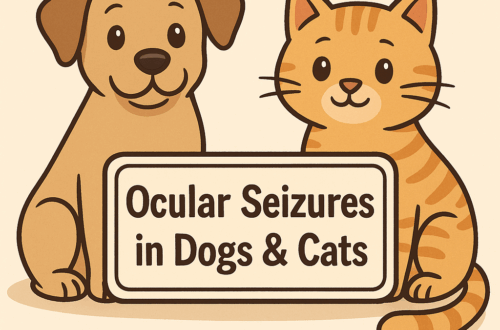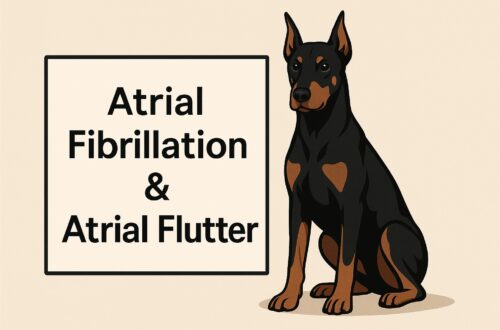We love dogs. But we don’t necessarily love all the potential things that come with being owners of them…especially behavior problems. Indeed, behavior issues in dogs can be quite problematic. This week’s post is meant to raise awareness of the top behavior problems in our canine companions. As GI Joe said, “knowing is half the battle”, so my hope is increased visibility of canine behavior problems will help dog owners recognize them and seek the advice of veterinarians and board-certified veterinary behavior specialists.

Problem #1 – Incessant begging for food
Dogs love their food. Too often, they love our food too. Call them table scraps or table snacks, our canine companions seem to always want something from our plates. Growing up, my paternal grandparents called this behavior “bumming for food.” At almost each meal, I’d hear my Grammy remind the dogs, “remember, no bumming!” It’s important for dog owners to establish healthy boundaries in their respective homes. My grandparents did this well. Their dogs knew they weren’t allowed to be in the dining room when we were eating. This wasn’t a big deal to the dogs because when we were eating, they were chowing down too.

We all know dogs should be fed a properly formulated and balanced food. Just as important as proper nutritional support is setting appropriate boundaries around the dinner table. Defining and setting those boundaries are obviously different processes for each family, but dog owners are encouraged to collaborate with their veterinarians for guidance about how to establish and foster those healthy boundaries while supporting the human:animal bond.
Problem #2 – Excessive barking
Constant barking is one of my biggest pet peeves…no pun intended. I can’t stand seemingly needless barking. But as a medical professional, I recognize there are reasons for excessive barking – fear, anxiety, aggression, pain, excitement, and boredom just to name a few. Pet owners need to acknowledge their dog’s excessive barking is an issue, and work with their family veterinarian and possibly a board-certified veterinary behavior specialist to resolve the problem. I know that’s sometimes easier said than done, but for the sake of one’s dog (and everybody else around them), it’s imperative to investigate the problem and find a suitable solution.

Problem #3 – Aggressive toward other animals
As a board-certified veterinary emergency and critical care specialist, I’ve seen my fair share of animal bite wounds. Dog on dog. Big dog on little dog. Little dog on big dog. Dog on cat. Cat on dog! You name, I’ve seen it. These types of injuries are not uncommon. There are many reasons for animal bites to occur, most commonly fear, pain, illness, possessiveness, dominance, frustration, and territorial issues. The jaws of dogs are powerful, and indeed, they can be lethal.

Let’s dispel a popular myth – no dog breed is inherently more aggressive than another. Pit bulls aren’t the devil. The most aggressive dog I’ve met was a golden retriever. It’s important to understand all dogs have the potential to bite. Even dogs that are normally very friendly can bite under certain circumstances. When a dog is aggressive, it’s imperative to determine the cause as quickly as possible. Pet owners should partner with their family veterinary and possibly a board-certified veterinary behavior specialist to help resolve aggression issues before injuries to other animals and/or humans occur.
Problem #4 – Inappropriate urination & defecation indoors
Few things are more frustrating than a pet inappropriately defecating and/or urinating in one’s home. Let’s be honest. It’s downright gross. With that being said, I want dog owners to recognize this important fact: excluding “potty training” puppies, these accidents are due to an underlying health condition the vast majority of the time. There’s an actual medical problem affecting a pet’s elimination habits. This means it’s absolutely essential families work with their family veterinarians and possibly board-certified veterinary internal medicine specialists to rule out primary medical conditions before pursuing interventions for behavioral issues. In general, only once primary medical problems have been eliminated from possibility should one consider behavioral modification therapies. Board-certified veterinary behavior specialists are available to partner with you and your family veterinarian if needed.

The take-away message about behavior problems in dogs…
Behavior problems in dogs are serious health issues that can negatively affect the lives of both dog and human companion. Thankfully, primary veterinarians and board-certified veterinary behavior specialists are available and ready to partner with families to resolve this important problems.
To find a board-certified veterinary behavior specialist, please visit the American College of Veterinary Behaviorists.
To find a board-certified veterinary internal medicine specialist, please visit the American College of Veterinary Internal Medicine.
Wishing you a wet-nosed kisses,
CriticalCareDVM







